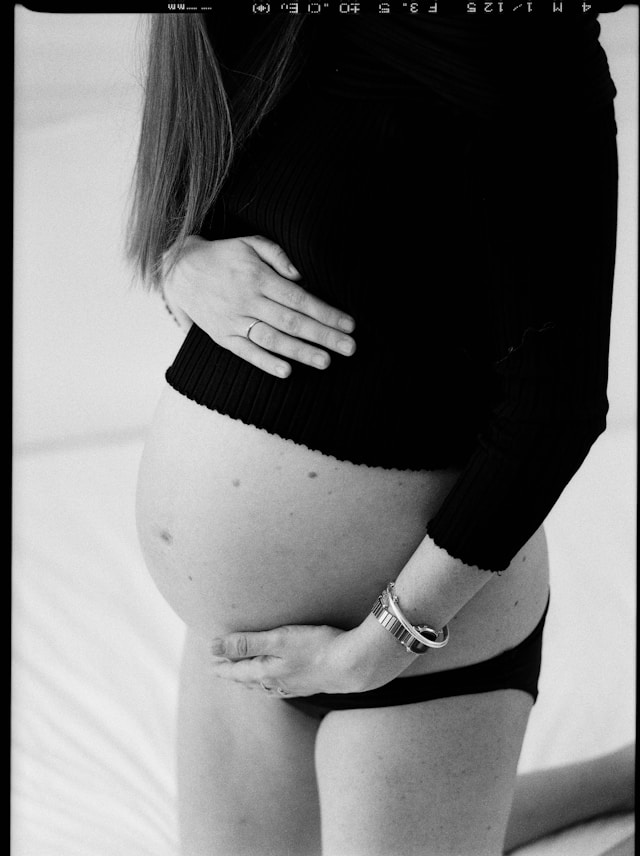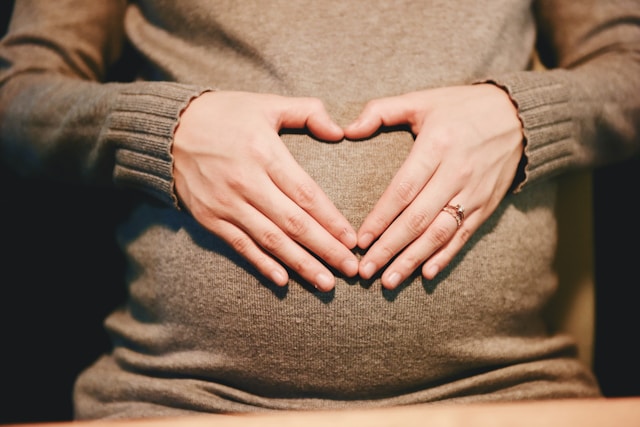“Eating enough during pregnancy” is crucial for the health of both the mother and the baby. It is important to understand the signals and symptoms your body might show if you’re not getting enough nutrients while expecting.
When eating during pregnancy, there are several factors to consider, ranging from first-trimester sickness to food aversions and new nutritional standards. With all these changes, it’s natural to feel overwhelmed about whether you’re eating enough.
I want to reassure you after saying that. Find out how to assess whether you’re eating enough while pregnant by reading on.
Table of Contents

YOUR GROWTH IS AS UNIQUE AS YOU ARE
Your health care team is the most important resource for all of your pregnancy requirements, and I want to emphasize that first and foremost. The indications, symptoms, and dietary implications of each woman’s pregnancy are unique, just as her pregnancy is unique.
Prior to making any big dietary modifications or adjustments, make sure you speak with your physician and a certified nutritionist. Make sure to let them know about any unusual symptoms or indications you observe as well. The following details pertain to a singleton pregnancy without complications.

How Much Is Enough: Eating Enough During Pregnancy?
Prior to talking about whether or not you’re eating enough while pregnant, it’s critical to establish just what constitutes “enough.”
It may surprise you to hear that consuming less calories during the first trimester of pregnancy is not necessary. Thus, unless your healthcare provider tells you otherwise, continue taking your usual dosage! The real surge in energy occurs in the second and third trimesters of pregnancy.
It is generally advised to increase daily caloric intake by approximately 340 during the second trimester and approximately 450 during the third trimester (2). Before making any precise recommendations, one must also take into account one’s level of physical activity and personal needs.

3 Indications That You Might Not Be Eating Enough During Pregnancy
Adequate intake is essential for your baby’s growth and well-being during your pregnancy, as previously discussed. These are a few typical signals your body may send to you that you may not be eating enough.
Inadequate Weight Gain

Over the course of your pregnancy, your doctor will discuss the topic of weight gain with you. They’ll tell you that in order to have a healthy pregnancy, weight gain is to be expected.
In addition to the actual weight of the baby, this increase in weight comes from the following changes:
- the placenta of the mother, which serves as the baby’s nutritional “gatekeeper” as all nutrients pass through it.
- amniotic fluid, or the fluid around the embryo
- extra fat reserves
- increased blood volume
- The total amount of weight gained during pregnancy is influenced by the size of the uterus and the breasts.
It is advised that women acquire between 25 and 35 pounds in light of all of this. However, it’s crucial to remember that the best predictor of how much weight gain is appropriate for you is your pre-pregnancy weight. The general recommendations from the Mayo Clinic about weight gain can be found here.
Why then am I telling you everything? An sufficient amount of nutrients must be easily obtainable through meals for the body to undergo these changes, develop the proper amount of weight, and produce a happy environment for the kid.
It could indicate that you are not eating enough during pregnant if you discover that you are not gaining weight as expected.
Signs of Not Eating Enough During Pregnancy: Lightheadedness, Lethargy, and More

Low blood sugar is one of the most frequent reasons of dizziness, regardless of pregnancy. When there is insufficient glucose, or sugar, in the bloodstream to keep sugar levels in check, low blood sugar results. Our bodies need balanced sugar levels to provide us steady, long-lasting energy. We may therefore experience mild vertigo, apathy, or weakness when these fall.
We need to eat enough food to keep our blood sugar levels regulated.If you experience occasional vertigo while your body adjusts to the increased nutritional demands brought on by your pregnancy, this could indicate that you’re not getting enough food.
Never-ending Hungry

Being always hungry is another typical indicator that you might not be eating enough. And I really do mean it when I say always! As soon as you’ve finished eating, at any time during the day, or even in the middle of the night.
The body uses hunger cues to let us know when it needs extra energy. Pregnancy causes our energy demands to change, and our hunger cues change too. We have slightly greater and more frequent feelings of hunger.
Here, it’s critical to recognize the subtle differences between hunger indicators and cravings. Even while we might want for a certain flavor, this does not always indicate that we are physically hungry. Therefore, if you’re not hungry but are simply having strange cravings, don’t stress about it!
You might not be eating enough when you’re pregnant if you experience extreme hunger on a daily basis. Once you begin to feel satiated, content, and full, keep upping the amount and frequency of your meals.
What to Do If You’re Not Eating Enough During Pregnancy
Spend some time focusing on your intake and increasing your portion sizes in a way that feels comfortable for you if you identify with any one or more of these three symptoms. Include one or more extra snacks in your daily routine, or moderately up the portion sizes you eat.
To keep your healthcare team informed, make sure you stay in constant communication with them. They will be able to provide you with advice that are suited to your needs and circumstances.
Tips for Eating Enough During Pregnancy for a Healthy Baby
Next, identify your type of balanced eating!
Find out which balanced eating archetype you are and what your particular type requires to keep your nutrition in check by taking this 45-second, free quiz. In this manner, you’ll be able to let go of your obsession with food and diets, keep your weight in check, and have a healthy relationship with both food and your body.
